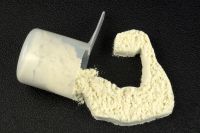We wanted to write something to try and answer some of the most asked questions surrounding nutrition and how a performance nutrition therapist can help. Everybody eats so nutrition is at the forefront of everyone’s mind and part of the reason for there being so much conflicting information, is that everyone has an opinion! Although some of the time, these opinions are not based on evidence, so they remain an opinion not a strategy. Performance nutrition is all about strategy. In this blog we focus on how performance nutrition affects an athlete however this strategy can and is applied to anybody.
What is Performance Nutrition?
Performance Nutrition is the tailoring of different evidence based strategies to the needs of the individual; whether this is in day to day life at one end of the spectrum or for athletes so that their performance or training is improved. This can be through optimising their current nutritional practices by using interventions of the individuals or athlete’s diet to impact their training and or their performance. This can be achieved in a number of different ways which included getting to know the individual / athlete and their:-
- lifestyle

- their sport and the event
- their current intake
How is this done?
Our therapist, David Dixon through food diaries and/or consultations identifies areas in which an athlete might improve their diet in order to enhance their ability in training, recovery and competitions. According to the SENr, “this requires an understanding of the physiological and biochemical responses to physical activity and exercise and of the special circumstances that occur during training and competition in sports”

This might be achieved through:
- Improving the amount and types of foods eaten before, during and after a training session. Although things that might affect this are; the training phase of the athlete and athletes; in the past studies have found this can increase the amount of training that can be completed and the session intensity that can be achieved.
- Eating the correct balance of nutrients (primarily protein and carbohydrates) can affect an athlete’s body and gets the most gains from the session (i.e. strength or endurance gains). It assists with recovery allowing the athlete to train again within a short period of time and lastly it has been shown to reduce illnesses so training days are not missed.
- Hydration can be made better by changing the type and timing fluids being drunk either for training and/or competition. By doing so physical fatigue, through dehydration or energy loss will be reduced. This also applies to the athlete’s ability to concentrate and make decisions.
If you have any further questions relating to nutrition, leave a reply below, or if you would like to book a consultation with our expert, please feel free to email us on info@fayepatison.com or call the clinic directly on 01245 690520. We are here to answer all your questions.





